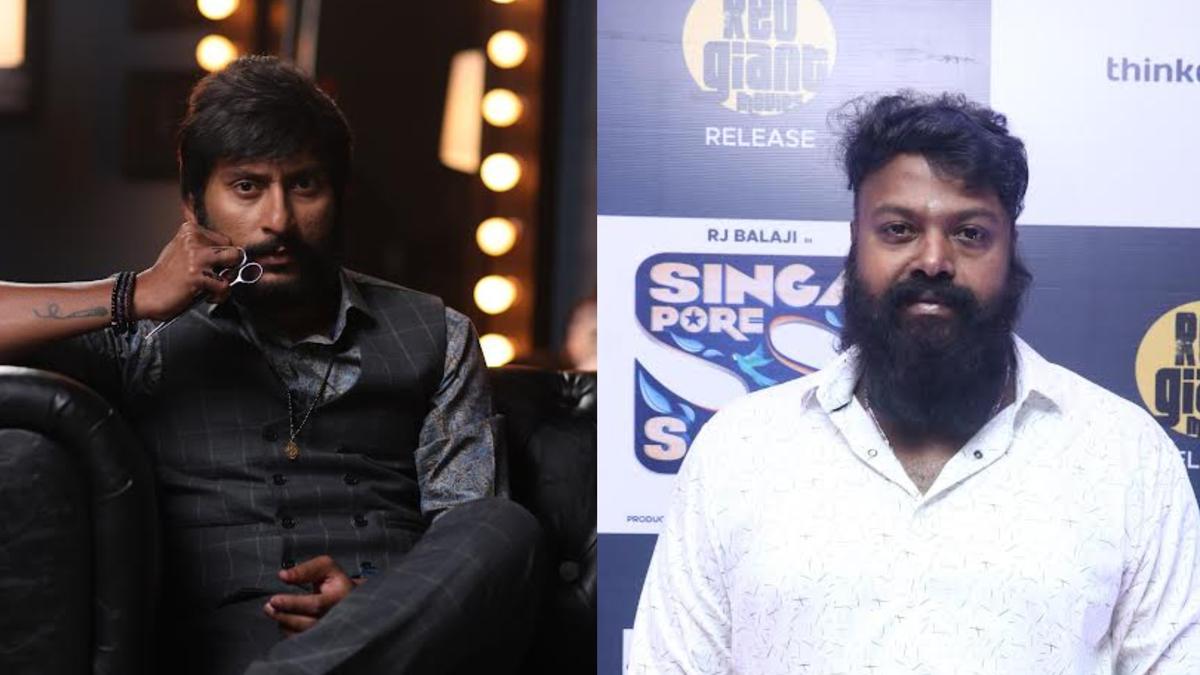
Director Gokul on ‘Singapore Saloon,’ and his experience working with RJ Balaji and a slew of veteran actors
The Hindu
Filmmaker Gokul talks about his next film, the coming-of-age dramedy ‘Singapore Saloon’, the inspiration behind it, and why he prefers working with new actors
After an alcoholic in Idharkuthane Aasaipattai Balakumara, a con artist in Kashmora and a comical gangster in Junga, director Gokul is back, and this time, his protagonist is in a much more mainstream profession. The filmmaker is teaming up with RJ Balaji for Singapore Saloon, in which the latter plays a hairstylist.
“I already had the story of someone working in a barber shop, and the idea took proper shape when I met a hairstylist who worked on the sets of Kaashmora. He is a stylish chap whose attitude and attire attracted me. He loves his job, and I based my protagonist on him. Similarly, how we present ourselves is important and the hairstylists’ role in it is paramount,” says Gokul.
“Our dreams and ambitions keep changing over time, but what if an eight-year-old boy aspires to become a hairstylist? Once upon a time, it used to be a family profession. but now it has become a high-profile job; there are special courses for it, and the one who inspired me to make this film is earning lakhs every month. More than that, every person needs hope to jump from one stage of life to another. That’s something the film talks about in my style.”
Having no style is my style (laughs). I wonder if I should have just stuck to similar stories and I would’ve been known for a particular style of films. But it doesn’t excite me to do the same story again. Like the famous Chandrababu song, not everyone who is intelligent wins, and not everyone who has won is intelligent. Singapore Saloon is a favourite film of mine to date because of the miracles that happened behind the scenes. I had a scene in the rain and for that, I needed lorries of water to make a dry, long stretch of tarmac look wet. The permission to shoot was after 10 pm and it rained precisely till 8:30 pm and stopped. It feels like a lot of positive things fell into place for this film to happen.
Every protagonist of mine will have their own characteristics that I take an effort to script. That said, we have to take other aspects, such as the film’s business, into consideration. Isari Ganesh sir really liked the story and this is one of the most expensive films for Balaji. The story itself is about an ordinary man fighting against the odds, and so, I needed an artist without an image or the need for heroism. It’s very different from what he has done in his previous films.
It’s actually easier to mould new actors. But in Singapore Saloon, we have around 15 such seasoned actors. When we decided on an audio launch, we realised just our cast list would be a long one. I invited only Vijay Sethupathi because of how close he is to me. I can’t wait to see how the audience reacts to the scenes featuring Sathyaraj sir and Robo Shankar.
As far as writing characters is concerned, it comes down to creativity. For example, in Idharkuthane..., I came up with the ‘annachi sugar patient’ trope for Pasupathy’s character. That opened up a whole new set of possible situations to write. My films are performance-based; that’s why actors find working with me to be tough, but love me after seeing the final output.













